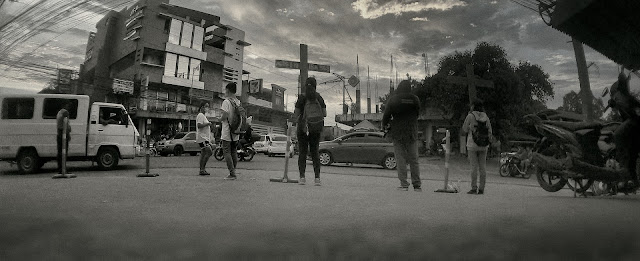To Stand before God Then Is To Set Our Priorities Here
Very early in the course of His ministry, the Lord Jesus taught His people that they were to be the light—not of Jerusalem, not of Judea, nor yet of the Jewish nation, but—of the world. And He taught them to pray—not as the heathen, who use vain and unmeaning repetitions; nor yet as the worldly-minded, who ask first and principally (if not solely) for their own private benefit and need: "For," said He, "your Father knoweth what things ye have need of before ye ask Him. After this manner therefore pray ye:—
" Our Father which art in heaven,
" Hallowed be Thy name;
" Thy kingdom come;
" Thy will be done; as in heaven, so in earth."
And it was only after these petitions, and quite secondary to them, that any personal petitions were to be offered. Even the very moderate one, "Give us this day our daily bread," followed them. Is not this order too often reversed in the present day? Do not Christians often really feel, and also act, as though it was incumbent upon them to begin with, "Give us this day our daily bread;" virtually concluding with, "If consistent with this, may Thy name be hallowed too?" And is not Matt. 6.33, "Seek ye first the kingdom of God, and His righteousness; and all these things shall be added unto you;" practically read, even amongst the professed followers of Christ, Seek first all these things (food and clothing, health, wealth, and comfort), and then the kingdom of God and His righteousness?
Instead of honouring Him with the first-fruits of our time and substance, are we not content to offer Him the fragments that remain after our own supposed need is supplied? While we thus refuse to bring the tithes into His storehouse, and to prove the Lord therewith, can we wonder that He does not open the windows of heaven, and pour us out the fulness of blessing that we desire ?
 Prayer and planning filled Hudson Taylor's time: "China is not to be won for Christ by quiet, ease-loving men and women... the stamp of men and women we need is such as will put Jesus, China and souls, first and foremost in everything, and at every time, even life itself must be secondary." In 1857, the writer had on one occasion been preaching in Ning-po the glad tidings of salvation through the finished work of Christ, when a middle aged man stood up, and before his assembled countrymen gave the following testimony to the power of the gospel : "I have long sought for the truth Taoism; as did my father before me—but I have not found it. I have travelled far, but I have not found it. I have found no rest in Confucianism, Buddhism, but I do find rest in what I have heard tonight. Henceforth I believe in Jesus." This man was one of the leading officers of a sect of reformed Buddhists in Ning-po. A short time after this profession of faith in the Saviour, there was a meeting of the sect over which he had formerly presided. The writer accompanied him to that meeting, and there, to his former co-religionists, he testified of the peace which he had obtained in believing. Soon after, one of his former companions was converted and baptized. Both now sleep in Jesus. The first of these two, long continued to preach to his countrymen the glad tidings of great joy. A few nights after his conversion, he asked the writer how long these glad tidings had been known in England. He was told that we had had the gospel for some hundreds of years. The man looked amazed. "What?!" said he, "is it possible that for hundreds of years you have had the knowledge of these glad tidings in your possession, and yet have only now come to preach them to us? My father sought after the truth for more than twenty years, and died without finding it. Why did you not come sooner?" Ah! why, indeed, did we not go sooner? Why? Shall we say the way was not open ? For fifty years it has been more open than we have been ready to occupy. And now that it is so much more open than ever before, why are we still so slow to enter in? Since the treaty of Tien-tsin, more new Romish missionaries and sisters of charity have been poured into China than the whole staff of Protestant missionaries. Why are we doing so little? While we hang back the multitudes perish. Hudson Taylor, China's Spiritual Need and Claims |


Comments
Post a Comment